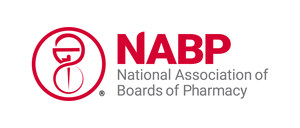NABP's Vision for .PHARMACY Generic Top-Level Domain Provides a Secure Online Space for Pharmacy Consumers Around the World
MOUNT PROSPECT, Ill. , April 15, 2013 /PRNewswire-USNewswire/ -- By ensuring that only legitimate Internet pharmacies will be able to use its proposed .PHARMACY domain suffix, National Association of Boards of Pharmacy® (NABP®) intends to create a secure and trustworthy online space for consumers around the world. Because the means to easily recognize safe online pharmacies is important for consumers worldwide, NABP will make the new domain available to legitimate online pharmacies and related entities that are located in the United States as well as in other countries. In developing its .PHARMACY proposal, NABP has partnered with international regulators, pharmacy organizations, and law enforcement agencies that share the Association's concern about illegal online drug sellers distributing products that endanger patient health.
With the support of this global coalition of stakeholders, NABP applied to the Internet Corporation for Assigned Names and Numbers (ICANN) to own and operate the .PHARMACY suffix, referred to as a generic Top-Level Domain (gTLD). In its application, NABP stated the importance of ensuring that only legitimate Web site operators that adhere to pharmacy laws in the jurisdictions in which they are based and to which they sell medicine will be able to register domain names in .PHARMACY.
"The ultimate benefactors of NABP's vision for this new gTLD will be the health care community and patients worldwide, who will be assured that all pharmacy sites ending in the .PHARMACY gTLD are safe and legitimate," states NABP President Michael A. Burleson, RPh. "By vetting .PHARMACY registrants for compliance with international standards, NABP seeks to protect patients worldwide from the health risks that can result when drug sellers circumvent supply chain safeguards."
When medicine passes through multiple foreign countries by way of various unknown buyers, sellers, and distributors all looking to profit, transactions often take place without regard to regulations that are intended to ensure patient safety. As a result of such practices, drug products of dubious quality may enter the supply chain and are often illegally distributed by online sellers. For example, as of January 2013, NABP had reviewed 10,275 Internet drug outlets selling prescription medications and found 9,938 Web sites – 97% of the total number of sites reviewed – to be out of compliance with pharmacy laws and practice standards established in the U.S. to protect the public health. Of these 9,938 Web sites identified as Not Recommended, nearly half offer foreign or non-Food and Drug Administration-approved drugs to US residents, and many of these distribute dangerous counterfeits to unsuspecting consumers. Further, health and regulatory agencies around the world have reported cases of patients harmed by counterfeit, substandard, and adulterated medications distributed by illegal Internet sellers.
NABP applied for the .PHARMACY gTLD in June 2012. The application was submitted as part of ICANN's expansion of available gTLDs, which currently include familiar suffixes such as .edu, .gov, and .com. It is expected that results of ICANN's review process for the .PHARMACY gTLD will be released by summer 2013.
Stakeholders that support NABP's application include many groups in the global pharmacy community. Among the coalition of stakeholders behind this initiative are the Alliance for Safe Online Pharmacies, Eli Lilly and Company, European Alliance for Access to Safe Medicines, Gilead Sciences, Inc, International Pharmaceutical Federation, INTERPOL, Janssen Pharmaceuticals, Inc, LegitScript, Merck/MSD, National Association of Pharmacy Regulatory Authorities, Neustar, Inc, and the state boards of pharmacy.
For more information about NABP and the .PHARMACY application, visit www.nabp.net/programs/pharmacy/pharmacy-and-nabp.
NABP is the independent, international, and impartial Association that assists its state member boards and jurisdictions in developing, implementing, and enforcing uniform standards for the purpose of protecting the public health.
SOURCE National Association of Boards of Pharmacy
WANT YOUR COMPANY'S NEWS FEATURED ON PRNEWSWIRE.COM?
Newsrooms &
Influencers
Digital Media
Outlets
Journalists
Opted In





Share this article